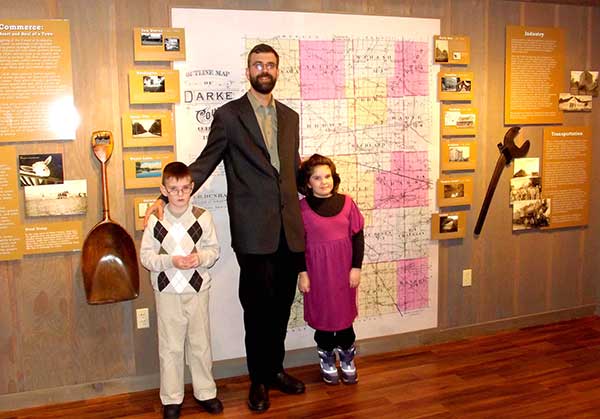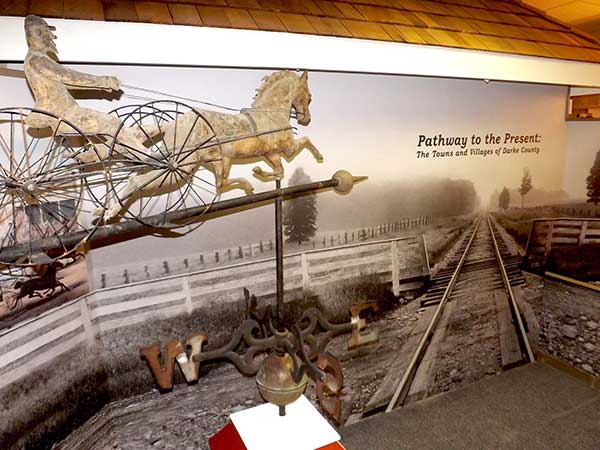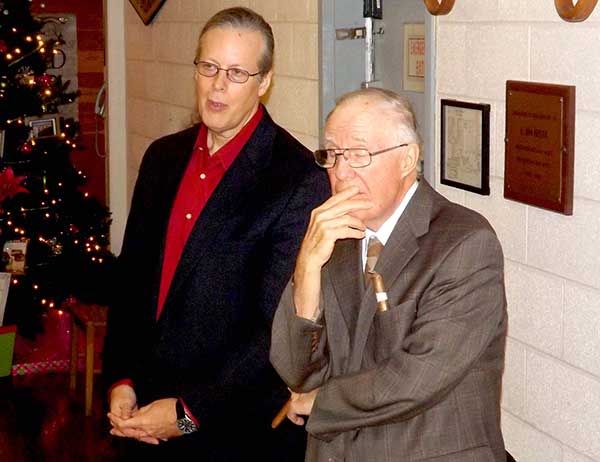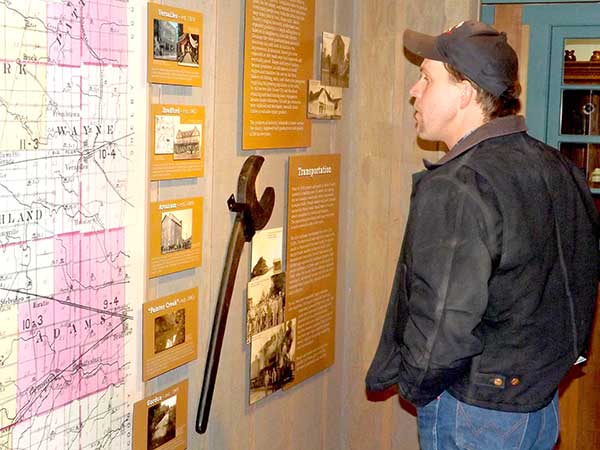|

|
“Pathway to the
Present” focuses on Darke County growth
By Bob Robinson
GREENVILLE – “I think it’s a very remarkable job,” said John Marchal,
president of the Darke County Historical Society. “It opens up the
county for us.”
Marchal was referring to the Garst Museum’s latest exhibit, “Pathway to
the Present: The Towns and Villages of Darke County.” It was the
Master’s Degree project of Wright State University’s Jason Swiatkowski
under the direction of museum Executive Director Clay Johnson, Ph.D.
The exhibit was introduced Dec. 8 during the museum’s Christmas Open
House. Despite the weather, approximately 100 people visited, toured
the museum and enjoyed the new offering.
“I started work on it in June,” Swiatkowski said. “The first 300 hours
were my internship, the remaining hours because this exhibit was
important.”
He noted he didn’t really think about the extra hours, quipping “I get
depressed.” He later admitted it came to nearly 400 hours, adding he
didn’t keep track too closely. “As soon as I passed 300 my bookkeeping
got real sloppy.”
According to a press release, the display focuses on the growth of
Darke County’s urban areas from 1850 to 1930. It is intended to
interpret and illustrate the development of the county from an
undeveloped wilderness to a settled and vibrant rural community.
Advancements in agriculture, commerce, industry and transportation made
this a period of intense growth for the area.
“I will be traveling the back roads and gathering those stories,
searching for Darke County’s less-well-known history,” Swiatkowski had
said in his proposal. He accomplished it, noting “I got to walk through
swamps and stuff.”
Two ingredients of the display came from the intern himself. There was
a photo of a goat he’d taken at the Darke County Fair. “It wasn’t taken
in that time period,” he admitted, “but I like it. And it fits.” The
other is a huge wrench dating back to that era.
“This has been sitting in my garage for years,” he said. “Now it has
found a home. It belongs to Garst Museum.”
Swiatkowski, who had been a social studies teacher for seven years,
said he is scheduled to get his master’s degree in the spring of 2015.
He has no plans for further education.
“I want to get started working in a museum, doing things like this,” he
said. A variety of options included educational programs, community
outreach and more.
Marchal said the museum’s partnership with Wright State University has
presented unique opportunities. He attributed them to Johnson.
“Clay is a Ph.D.,” he said. “They want their kids to come here and
learn. Now there is a waiting list (of students wanting to intern
here).”
Johnson said the display was an amazing use of the space leading into
the museum’s Village Wing.
“It was well done,” he said. “A great job. You can pat yourself on the
back,” he told Swiatkowski. The display is located on the ramp from the
Annie Oakley exhibit to the Village Wing.
Published courtesy
of The Early Bird
|

|

|

|

|
|
|
|

